People who shaped the department
From the founding of the Institute for Applied Mathematics in 1948 until today, a wide variety of individuals have made the creation and the development of the Department of Computer Science possible through their vision and their engagement.
Edoardo Anderheggen

Edoardo Anderheggen joins the Group for Computer Science in 1976 as a full professor. By then, the group already includes Peter Läuchli, Niklaus Wirth, Erwin Engeler, Carl August Zehnder and Jürg Nievergelt. For the divisions of construction, culture and surveying, he offers lectures in the field of computer science.
Erwin Engeler
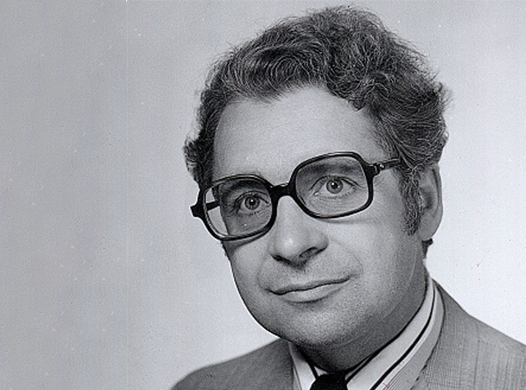
Erwin Engeler joins the Group for Computer Science in 1972 as successor to the late Heinz Rutishauser. On behalf of the group, he submits a proposal to the board at the end of November 1973 to formally transform the group into the Institute of Computer Science – the term 'computer science' thus officially establishes itself at ETH in 1974.
Hans-Peter Frei
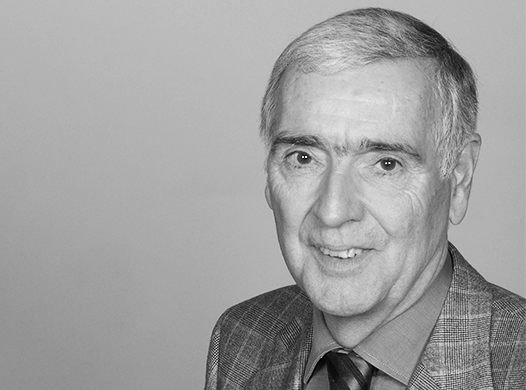
Hans-Peter Frei receives his doctorate in 1975 under Niklaus Wirth and subsequently heads the Information and Documentation Group at the Institute of Computer Science. As part of his doctorate, he develops the Thames teaching system to supplement the beginners' lectures in computer science. From October 1, 1984, Frei is a professor of computer science at ETH Zurich. He takes over as head of the newly founded Department of Computer Science in 1989.
Walter Gander
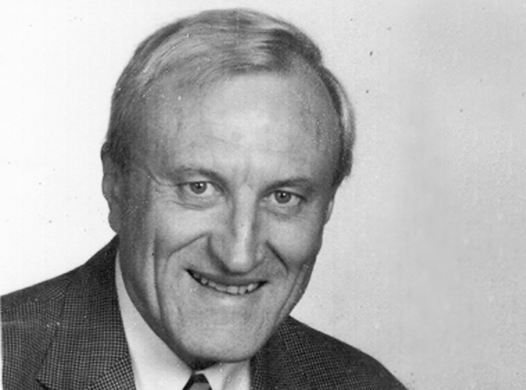
Together with the two senior assistants Peter Arbenz and Hans Hinterberger, Walter Gander founds the Institute for Scientific Computing in 1989, which he then heads from 1989 to 1997. From 1990 to 1992 and from 1997 to 2001, he serves as Director of Studies. At this time, he is also head of the department. In addition, from 1989 to 1991, Gander leads the Swiss Supercomputer Initiative to procure the national supercomputer in Manno. Walter Gander is an early advocate for the advancement of women in computer science, as well as for the establishment of independent computer science eduaction in schools.
Jürg Gutknecht

Jürg Gutknecht is elected assistant professor at ETH in 1985. Together with Niklaus Wirth, he introduces the operating system and the programming language Oberon in 1988. In 1995, as head of the Department of Computer Science, he introduces the first American-style credit system at ETH Zurich.
Peter Läuchli

In 1968, Peter Läuchli founds the Group for Computer Science together with Niklaus Wirth and Heinz Rutishauser. Further on, Läuchli is involved in the foundation of the Division of Computer Science (Division IIIC). This happens in 1981, together with Niklaus Wirth, Carl August Zehnder and Jürg Nievergelt. It lays the foundation for today's Department of Computer Science and its study programme. In the meantime, Gutknecht acts as head of the Division IIIC and later of the Department of Computer Science.
Jürg Nievergelt

Jürg Nievergelt joins the Group for Computer Science in 1975. Together with Niklaus Wirth, Carl August Zehnder and Peter Läuchli, he founds the Division of Computer Science (Division IIIC) in 1981. Many algorithms and data structures proposed by him find their way into textbooks and are still known to computer scientists today. Nievergelt is also considered a pioneer of computer science didactics. He served as head of the department twice.
Heinz Rutishauser
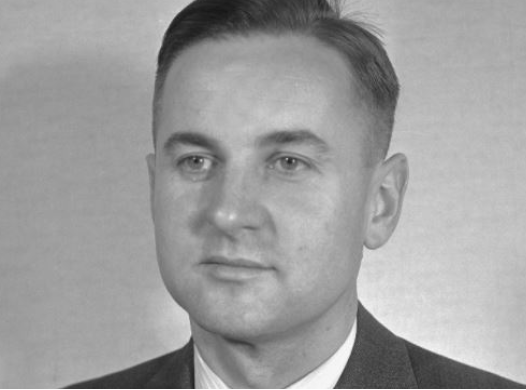
In 1951, as senior assistant to Eduard Stiefel, Heinz Rutishauser publishes his habilitation thesis on the automatic generation of programs, laying the foundation for many important concepts of compilers. Between 1949 and 1951, he develops the universal programming language ALGOL and invents the for-loop and other language concepts. From 1950 to 1956, he is involved with Eduard Stiefel and Ambros Speiser in the construction of the ERMETH (Electronic Calculating Machine of ETH), which is in use until 1963. In 1955, Rutishauser is appointed professor. Since the late 1950s, he has been involved in the development of numerical software, which has gained worldwide recognition. Together with Niklaus Wirth and Peter Läuchli, he founds the Group for Computer Science in 1968 and heads it until his sudden death in 1970.
Ambros Speiser
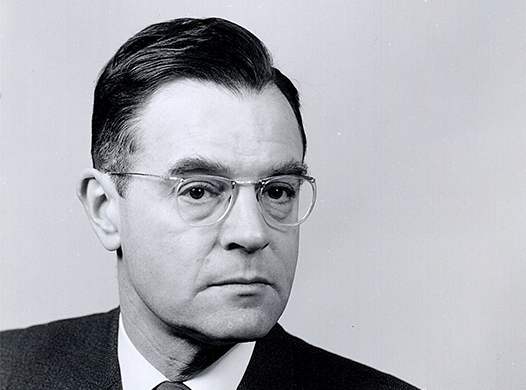
As an assistant to Eduard Stiefel, Ambros Speiser takes over the technical management for the construction of ERMETH (Electronic Calculating Machine of ETH) between 1950 and 1956. Speiser leaves ETH in 1955 and joins IBM. He establishes IBM's research centre in Rüschlikon and then the BBC Brown Boveri research centre in Baden-Dättwil. In 1962, ETH Zurich appoints him adjunct professor, and in 1986, he receives an honorary doctorate from ETH Zurich.
Eduard Stiefel
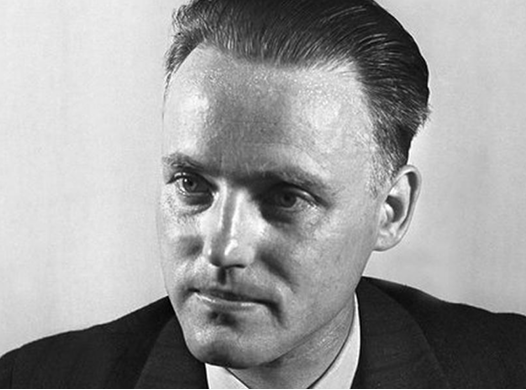
Eduard Stiefel becomes head of the new Institute for Applied Mathematics in 1948. In 1949, he rents the Zuse Z4 calculating machine for ETH. Eduard Stiefel and Ambros Speiser improve the Z4 to a significant extent during these years. At the same time, until 1956, Stiefel and his assistants Rutishauser and Speiser develop the ERMETH (Electronic Calculating Machine of ETH), which is in use until 1963.
Niklaus Wirth
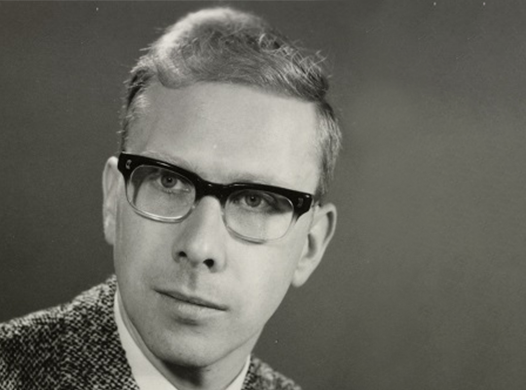
Together with Heinz Rutishauser and Peter Läuchli, Niklaus Wirth founds the Group for Computer Science in 1968. He continues the tradition of developing programming languages: Wirth augments ALGOL to ALGOL W, which forms the basis for his programming language Pascal. Pascal, published in 1970, enjoys international recognition and use to this day. In 1978, Wirth introduces the workstation computer Lilith with the programming language Modula-2. Finally, in 1981, Niklaus Wirth, together with Carl August Zehnder, Jürg Nievergelt and Peter Läuchli, founds the Division of Computer Science (Division IIIC) and lays the foundation for today's department. Five years later, in 1986, Wirth introduces the Ceres workstation together with Hans Eberle. In 1988, he creates the Oberon programming language and operating system. For his outstanding achievement in the development of Pascal and other programming languages, the ACM honours Niklaus Wirth with the Turing Award in 1984.
Carl August Zehnder
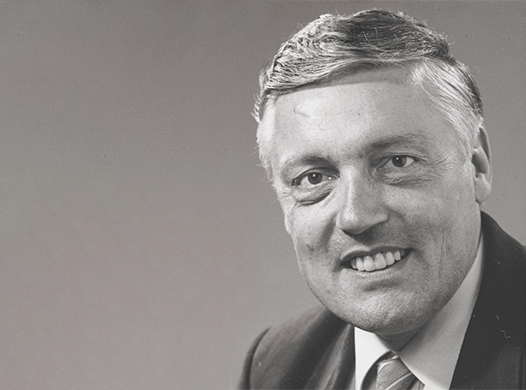
As an assistant to Eduard Stiefel, Carl August Zehnder creates half of ETH Zurich's examination schedules on the computer in the autumn of 1964 – the first IT application for ETH administration. Half a year later, all examination schedules are created digitally. Zehnder heads the Coordination Group for Data Processing from 1969 to 1973. In 1970, he becomes an assistant professor in the Group for Computer Science, which has been in existence for two years at the time and which eventually becomes today's Department of Computer Science. At the end of the 1970s, Carl August Zehnder, together with Niklaus Wirth, is the driving force behind the establishment of the Division of Computer Science (Division IIIC). In 1981, he becomes the founding head of the new division. In 1987, Zehnder is appointed ETH Zurich's Vice President for Services. He is always involved in the dissemination and recognition of computer science through lectures, events and initiatives on television, at schools and universities, in industry and in the military. Carl August Zehnder also coordinates the construction and infrastructure of the Centro Svizzero di Calcolo Scientifico (CSCS) in Manno.
